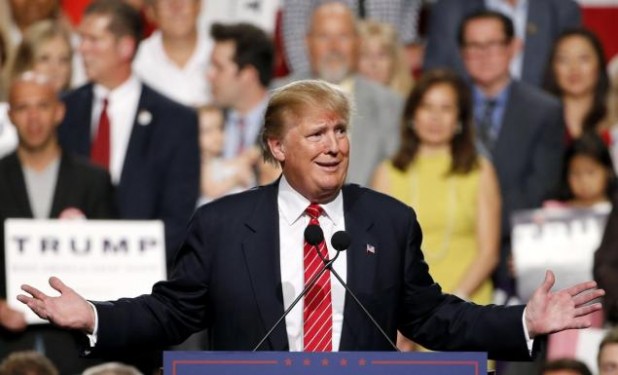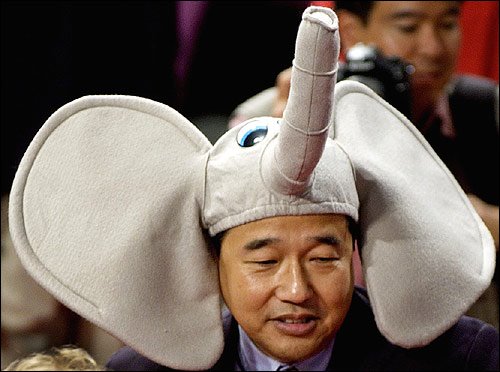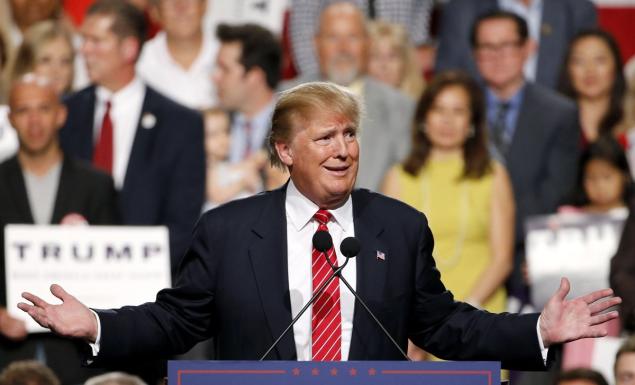Andrew Anglin
Daily Stormer
December 14, 2015

Every one on both sides of the political spectrum, across the entire planet, has condemned Glorious Leader’s kebab removal plan, even as the majority of the White public supports this agenda.
Many of those opposed, including (for whatever reason) the office of Barack Hussein Obama, have claimed that this anti-kebab stratagem is “unconstitutional,” apparently implying that the Constitution applies to everyone in the world.

Asian male law professor Jan Ting, who has long been a voice against invasion of America, has called out these lying kebab-huggers.

The hysterical response to Donald Trump’s proposal to restrict Muslim immigration is unwarranted.
Contrary to the claims of Trump’s critics, the power to suspend the admission of “any aliens or any class of aliens into the United States” is expressly reserved by statute to the president whenever the president finds that such admission “would be detrimental to the interests of the United States.”
Candidate Trump is telling us that President Obama should use this power, and that a President Trump would.
Despite vigorous assertions by talking heads that suspending the admission of Muslim immigrants would be unconstitutional, prior Supreme Court opinions clearly suggest that courts would reject constitutional challenges to any president’s proposed suspension of Muslim admission into the United States in accordance with U.S. law.
In the leading case of Fiallo v. Bell, the Supreme Court in 1977 noted, “Our cases ‘have long recognized the power to expel or exclude aliens as a fundamental sovereign attribute exercised by the government’s political departments largely immune from judicial control.’”
In upholding the authority of the government to deny admission to aliens, the high court observed that “in the exercise of its broad power over immigration and naturalization, ‘Congress regularly makes rules that would be unacceptable if applied to citizens.’”
The long line of cases referred to in Fiallo traces back to the Chinese Exclusion Case of 1889, in which the Supreme Court unanimously held that Congress could exclude by statute immigrant laborers of a particular race and ethnicity. If the government can exclude aliens on the basis of race and ethnicity, is there any basis on which it cannot exclude aliens? The answer so far seems to be no.
In 1972, the Supreme Court upheld the exclusion of a Belgian Marxist writer, rejecting First Amendment claims made on his behalf and on behalf of the U.S. citizens who had invited him and wished to meet with him.
The Supreme Court has also sustained the exclusion of an alien on the basis of secret evidence, essentially for no stated reason at all. And earlier this year the high court upheld the exclusion of the spouse of a U.S. citizen, rejecting due process claims made on behalf of the alien and the spouse.
President Jimmy Carter exercised presidential power to suspend admission of Iranians on the basis of their nationality during the Iranian hostage crisis. A constitutional challenge to his registration requirement for Iranians already in the United States was dismissed by the U.S. Court of Appeals for the District of Columbia. That court cited a Supreme Court opinion in the 1952 case Harisiades v. Shaughnessy, that “any policy toward aliens is … interwoven with … foreign relations, the war power, and the maintenance of a republican form of government. Such matters are so exclusively entrusted to the political branches of government as to be largely immune from judicial inquiry or interference.”
So if the proposed suspension of the admission of Muslim aliens is authorized by statute and likely to be judged constitutional by the courts, the dispute is reduced to a policy judgment.
It is obvious fact President Trump can do this, without any legal resistance at all.
But the media is never going to tell you that. They will just keep claiming it is “unconstitutional,” without ever even attempting to explain what that means.
